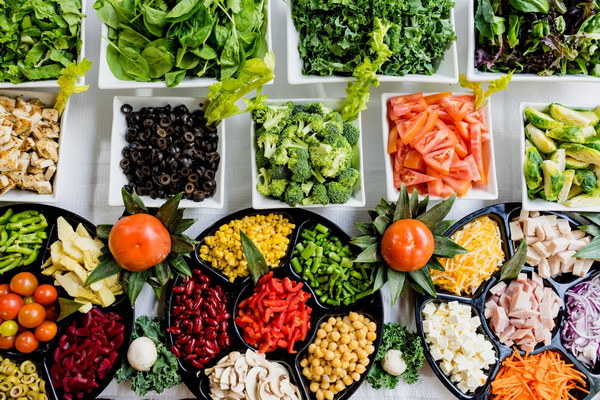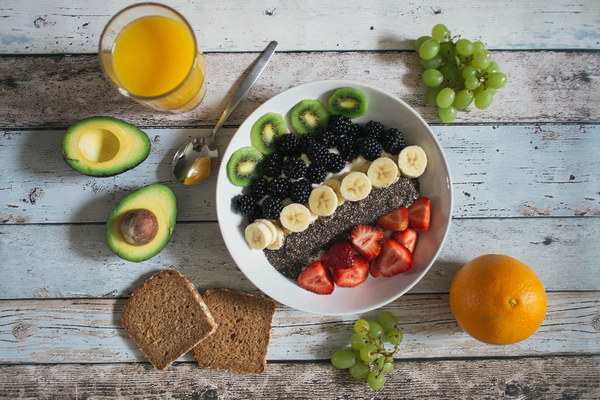Eating Right for Weight Loss and Stomach Health A Guide to Light and EasyontheStomach Diets
In today's fast-paced world, maintaining a healthy weight and a balanced diet can seem like an insurmountable challenge. However, by focusing on light and easy-on-the-stomach diets, you can achieve your weight loss goals while keeping your digestive health in check. This article will provide you with tips and insights on how to create a diet that not only supports your weight loss journey but also promotes overall stomach health.
1. Embrace Whole Foods

Whole foods, such as fruits, vegetables, whole grains, and lean proteins, are essential for a healthy diet. These foods are rich in essential nutrients, fiber, and low in calories, making them perfect for weight loss and stomach health. Incorporate a variety of whole foods into your meals to ensure a balanced intake of vitamins, minerals, and antioxidants.
1. Choose Light Proteins
Protein is crucial for muscle repair and satiety, but it's important to choose light proteins that are easy on the stomach. Opt for lean meats like chicken, turkey, and fish, as well as plant-based options like tofu, tempeh, and legumes. These proteins will help you feel full without weighing you down.
1. Incorporate Probiotics
Probiotics are beneficial bacteria that help maintain a healthy gut flora. Foods rich in probiotics, such as yogurt, kefir, and fermented vegetables (like sauerkraut and kimchi), can promote digestive health and aid in weight loss. Probiotics can also help reduce bloating, gas, and constipation, making your diet easier on the stomach.
1. Stay Hydrated
Drinking plenty of water is crucial for weight loss and overall health. Water aids in digestion, helps to flush out toxins, and keeps you feeling full, reducing the temptation to overeat. Aim for at least 8 glasses of water per day, and consider adding a slice of lemon or cucumber for added flavor.
1. Mindful Eating
Eating slowly and mindfully can improve digestion and prevent overeating. Take the time to savor your meals, focusing on the taste and texture of the food. This can help you recognize when you're full and avoid unnecessary calorie intake.
1. Avoid Processed Foods
Processed foods are often high in calories, fat, and sodium, making them difficult to digest and potentially harmful to your stomach health. Replace processed snacks with healthier options, such as fresh fruit, nuts, or homemade trail mix.
1. Plan Your Meals
Planning your meals can help you stay on track and ensure you're consuming a balanced diet. Create a weekly meal plan that includes a variety of whole foods, light proteins, and probiotics. This will make it easier to stick to your diet and avoid unhealthy temptations.
1. Listen to Your Body
It's essential to pay attention to how your body responds to certain foods. If you notice discomfort, bloating, or other digestive issues, consider keeping a food diary to identify potential triggers. Adjust your diet accordingly to avoid foods that may be causing problems.
In conclusion, a diet that focuses on weight loss and stomach health involves embracing whole foods, choosing light proteins, incorporating probiotics, staying hydrated, practicing mindful eating, avoiding processed foods, planning your meals, and listening to your body. By following these guidelines, you can achieve your weight loss goals while keeping your stomach happy and healthy. Remember, the key to success is consistency and patience, so be kind to yourself as you embark on this journey to better health.









